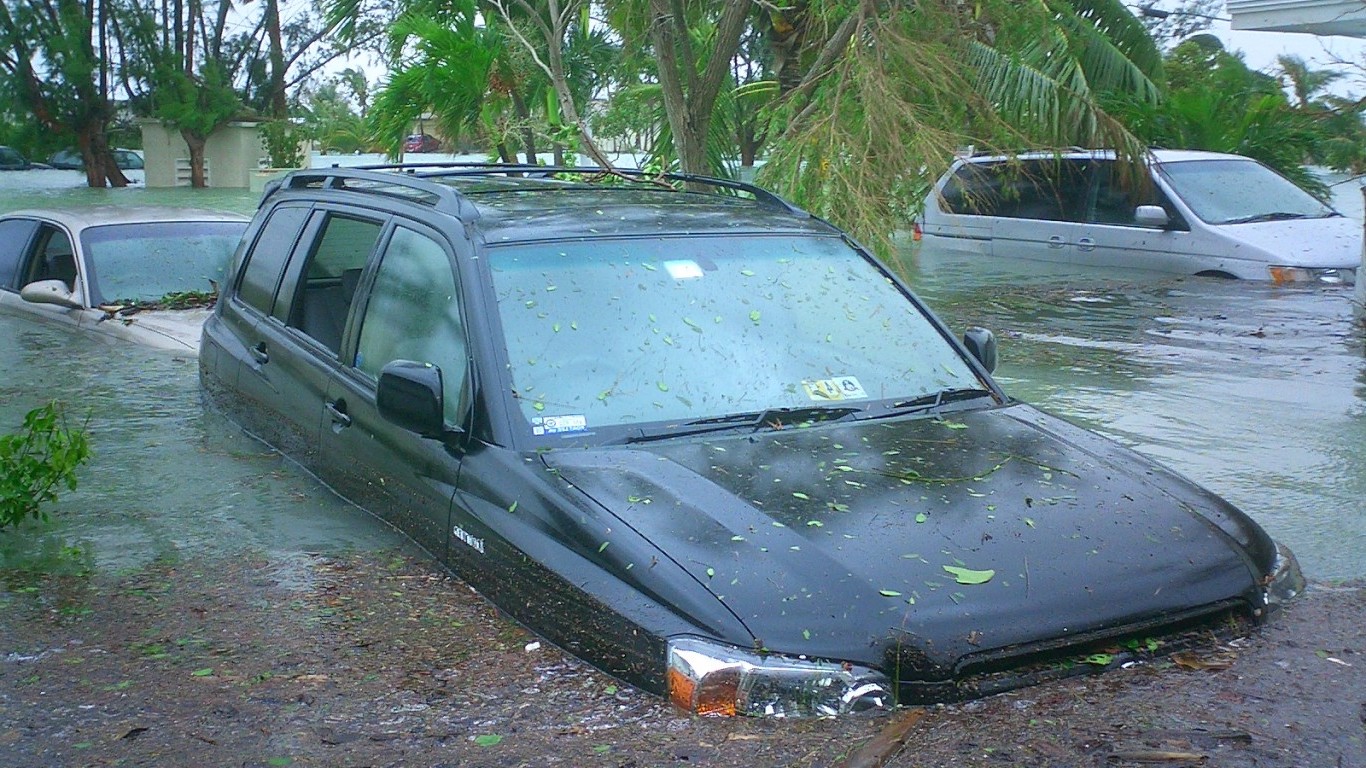Cars and Drivers
Auto Losses From Hurricane Florence Much Lower Than Harvey

Published:
Last Updated:

In the aftermath of Hurricane Harvey last year, between 400,000 and 600,000 vehicles were damaged or destroyed. Hurricane Florence is expected to wreck about 20,000 vehicles, according to vehicle-value tracking firm Black Box.
The reason should be obvious. Harvey struck the heavily populated Houston metropolitan area, home to more than 6 million people. Florence struck hardest at a portion of the North Carolina coast that is home to about 325,000 people, barely a third of the National Oceanic and Atmospheric Administration estimate of a total population of 1 million along the entire length of the North Carolina coast.
According to a report in Automotive News, Cox Automotive analyst Jonathan Smoke noted a vehicle density of about 162 vehicles per square mile in the area between Savannah, Georgia, and Norfolk, Virginia, is about half that of the Houston area (326 per square mile). Cox estimates that Florence could have destroyed between 20,000 and 40,000 vehicles in the Carolinas.
Some of the damage may have been mitigated by dealer efforts in the days ahead of Florence’s landfall to move vehicles to higher ground.
Part of the buying fervor that followed Harvey was partly due to typically slow August sales ahead of the storm. After the storm moved out of the area, there was a lot of pent-up demand, especially for used vehicles. This month’s market is far stronger and sales will get helped along even more by current pressure on new car prices.
Credit card companies are pulling out all the stops, with the issuers are offering insane travel rewards and perks.
We’re talking huge sign-up bonuses, points on every purchase, and benefits like lounge access, travel credits, and free hotel nights. For travelers, these rewards can add up to thousands of dollars in flights, upgrades, and luxury experiences every year.
It’s like getting paid to travel — and it’s available to qualified borrowers who know where to look.
We’ve rounded up some of the best travel credit cards on the market. Click here to see the list. Don’t miss these offers — they won’t be this good forever.
Thank you for reading! Have some feedback for us?
Contact the 24/7 Wall St. editorial team.